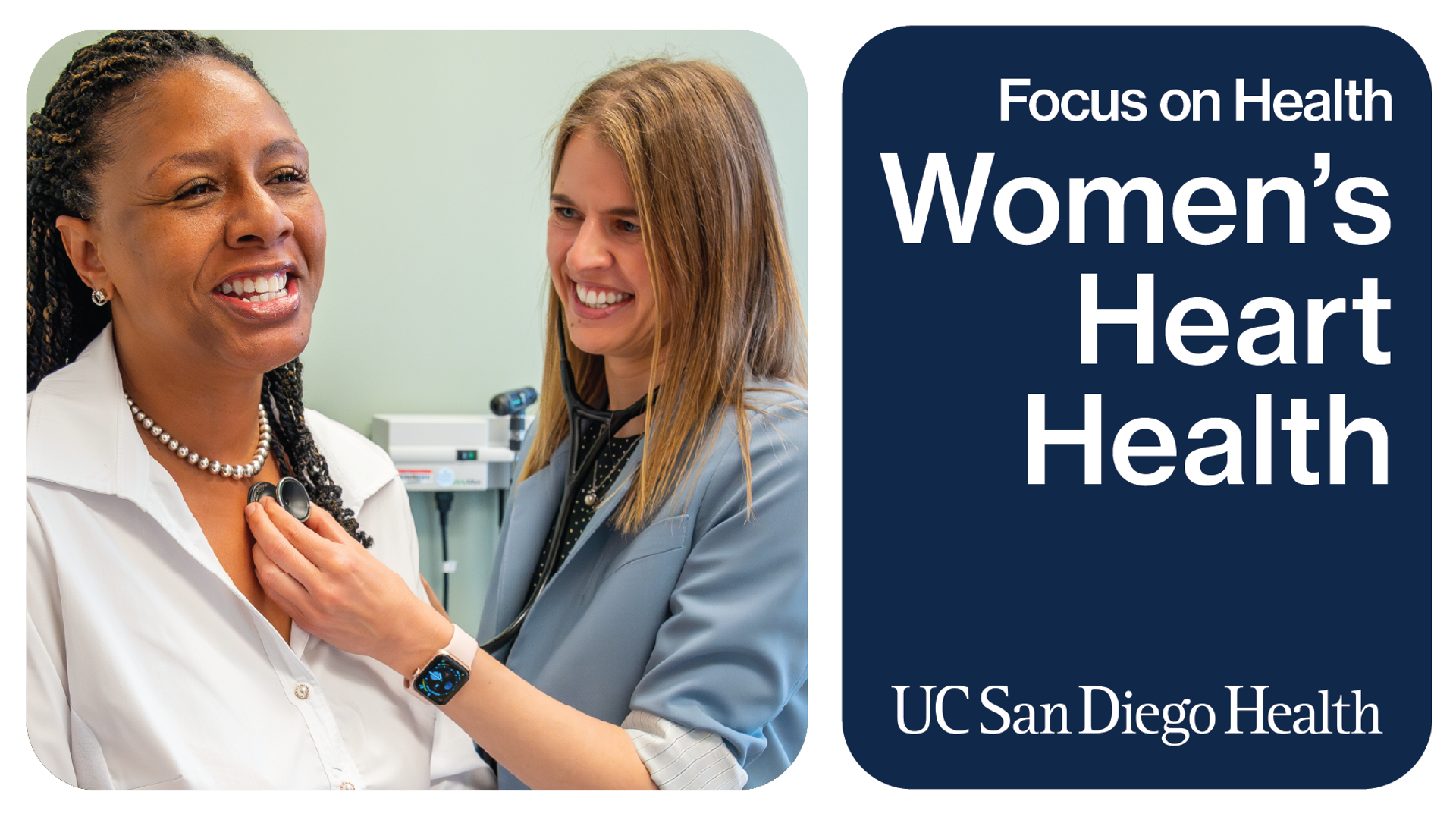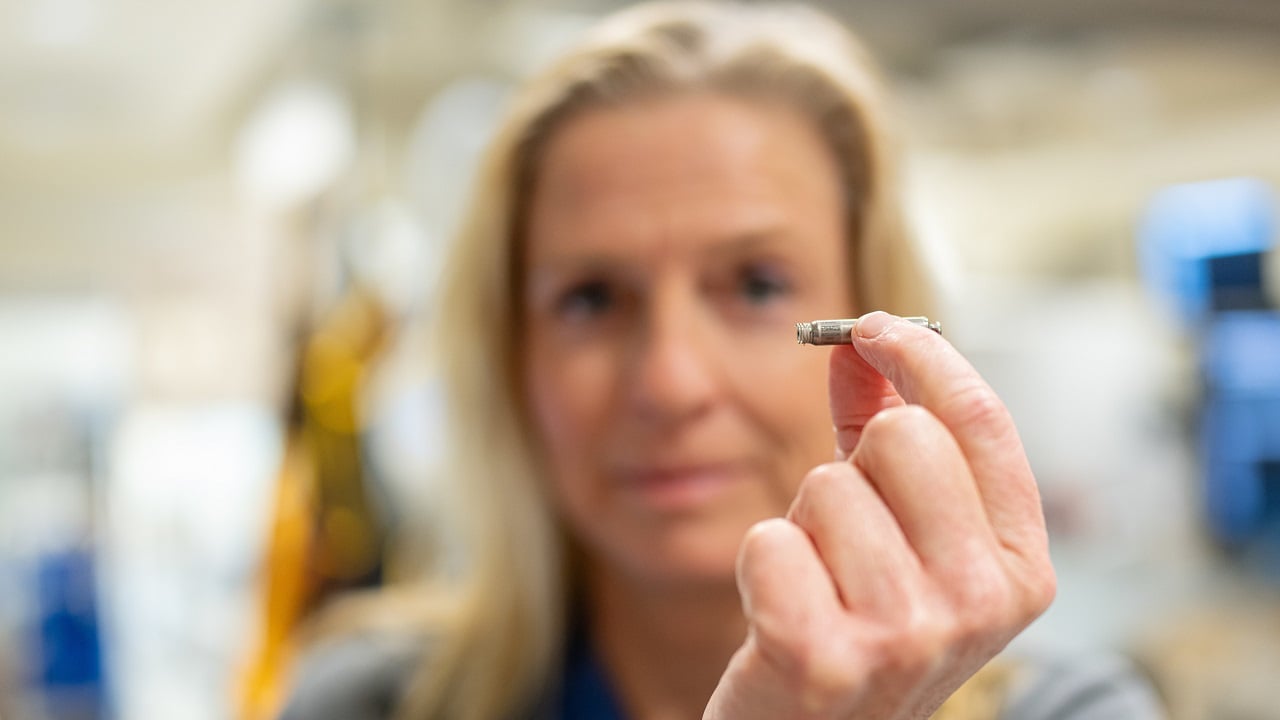Women's Cardiovascular Health
Coronary heart disease, heart failure and stroke are the No. 1 killer of women in America today.
Nearly half a million women will die from cardiovascular disease (CVD) this year, more than the next three causes of death combined, including all forms of cancer.
While most people are familiar with the symptoms and risk factors for CVD, few realize that there are important differences in women's symptoms.
Studies show that women with suspected CVD are less likely to be referred for diagnostic testing and less likely to undergo invasive testing or aggressive early treatment. This gender bias alone is reason enough for women to take a proactive role in understanding their risk of CVD.
Building Awareness About Women's Heart Health
UC San Diego Health Cardiologist Lori Daniels, MD, shares information about heart disease risk factors and life-saving tips for women.
Our Services
Our women’s cardiovascular health program offers individualized consultation to screen for CVD risk and assess any symptoms you may have. This helps us determine your heart health and the level of prevention or treatment strategy you may need.
The program is led by cardiologists dedicated to helping women understand, prevent and treat the disease.
To schedule a cardiovascular consultation, which includes personalized risk factor evaluation, please call 858-657-8530.
Video: Dr. Anna Narezkina On Why Good Cardiovascular Care Is Vital for Women

Research in Women's Cardiovascular Disease
The importance of clinical research is vital as so many women with CVD are undiagnosed or initially misdiagnosed. Not too long ago, due to a lack of research data on women, the American College of Physicians suggested that women do not need to be screened or treated for high cholesterol as a primary means of CVD prevention.
Today, with the development of active clinical research, we know that women benefit as much as men from cholesterol-lowering drug regimens.
Advances in diagnosis and treatment would not occur without active clinical research. Our program is uniquely positioned to facilitate and conduct gender-specific research, which translates into new treatments and technologies for women.
Women's Cardiovascular Health Providers
Cardiovascular Locations
See heart care locations conveniently located around San Diego County.



